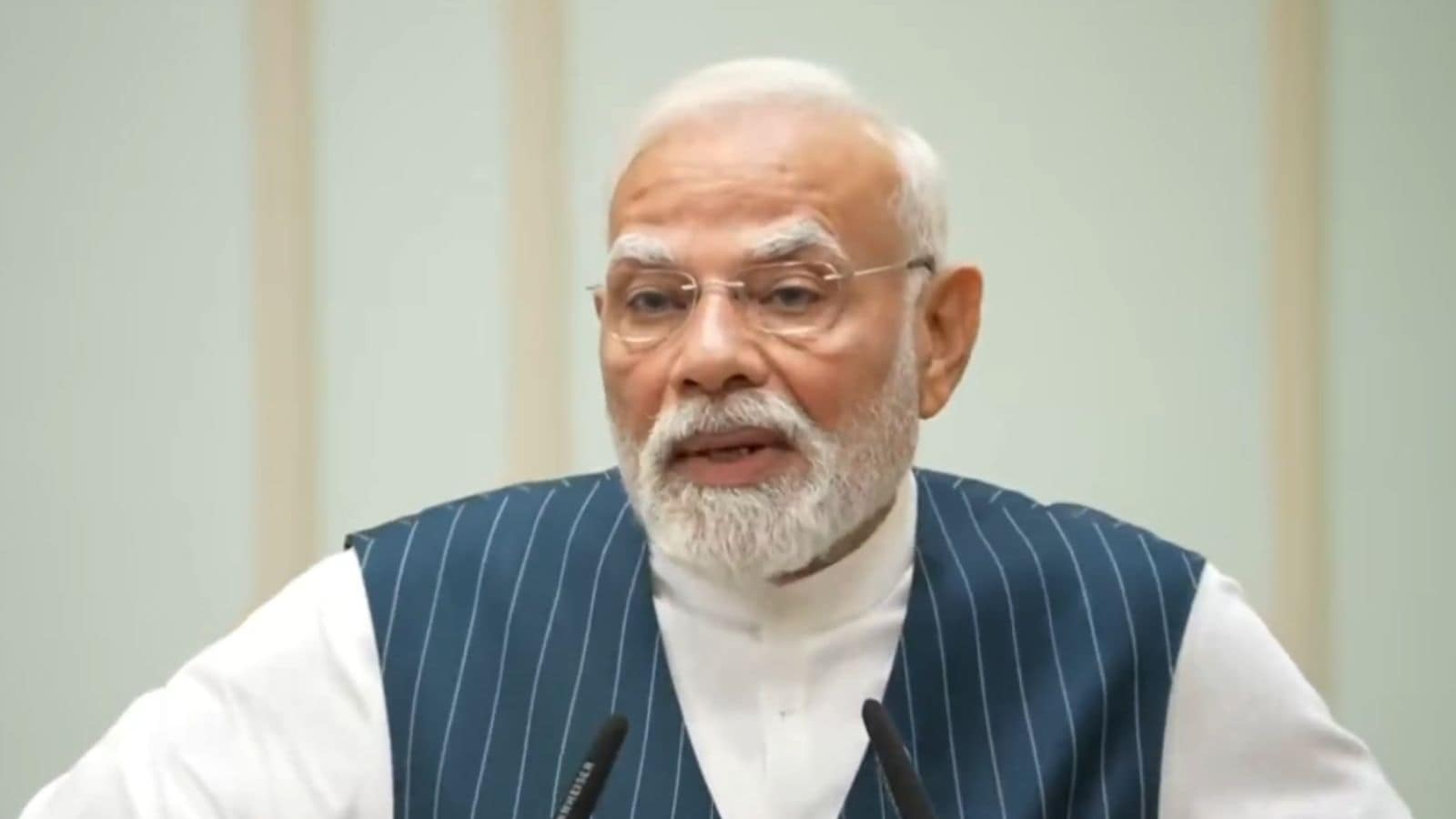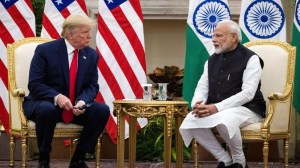Prime Minister Narendra Modi on Thursday hailed GST 2.0 as a “double dose of support and growth”, saying it offers the dual benefit of “increased savings for common families and strengthening of economic momentum”. He said the reforms were dedicated to the goal of an “Aatmanirbhar Bharat”.
In an interaction with the winners of the National Teachers’ Awards, on the eve of Teachers’ Day, Modi said that in his Independence Day speech, he had promised a “double dhamaka” before Diwali and Chhath Puja, and the new tax rates would come into effect from September 22, the first day of Navratri.

Describing it as a historic step forward in India’s economic transformation, he said GST 2.0 had added “five key gems” to the country’s economy. “First, the tax system has become significantly simpler. Second, the quality of life for Indian citizens will further improve. Third, consumption and economic growth will receive a new boost. Fourth, ease of doing business will strengthen, leading to more investments and job creation. Fifth, the spirit of cooperative federalism, partnership between the Centre and the States will be further reinforced, which is vital for a developed India,” he said.
Noting that teachers are sensitive to the need for timely changes in curriculum and syllabus, aligning education with the evolving demands of time, he said: “This same spirit is reflected in the reforms being undertaken for the nation… Reforms should be uninterrupted, in line with the times and with a long-term view… This is the firm commitment of our government… Without timely changes, we cannot give our country its rightful place in today’s global context.”
Calling the GST regime “one of the biggest economic reforms in independent India”, Modi said: “In a progressive Bharat… a need was felt for next generation reforms in the GST, and it was done.” He said the reforms would “provide substantial relief to the poor, neo-middle class, middle class, farmers, women, students, and youth”.
“Young professionals starting new jobs will especially benefit from the reduction in vehicle tax. This decision will make it easier for families to manage household budgets and improve their quality of life,” he said. With daily-use items, from paneer to shampoo to soap, getting cheaper, monthly household expenditure will see a dip, he said.
Drawing comparisons with the previous Congress governments, he said that prior to 2014, essential goods and daily-use items were heavily taxed. “If the same tax regime had continued, people would still be paying Rs 20-25 in taxes for every Rs 100 spent. In contrast, under the BJP-led NDA government, GST on such goods and services has been reduced to just 5 per cent, ensuring direct relief for millions of families across the country,” he said, adding that his government’s priority was to ensure more savings and less expenditure for households.
“Such were the circumstances that the Congress used to take 21 per cent on toffees for children…cycles, which are needed by crores of citizens on a daily basis, used to attract 17 per cent tax. Sewing machines, which were the symbol and instrument of dignity and independence for lakhs of women across the nation, used to be taxed at 16 per cent,” he said.
Story continues below this ad
“The Congress had even made tourism difficult for the middle-class; hotel room bookings used to attract 14 per cent tax, and some states used to take additional luxury tax. Now, all such products and services will only be levied 5 per cent tax,” he said.
Saying that his government had provided relief in all spheres — from healthcare to tourism, agriculture to construction – Modi said his government’s guiding principle was “Nagarik Devo Bhava” (Citizen is God).
Modi also made a strong pitch for the use of “swadeshi” products and urged teachers to lead campaigns for “vocal for local”. He called upon schools to organise initiatives like “Swadeshi Week” and “Local Product Day” where students would be encouraged to bring local products and share their stories.
Highlighting the government’s dual focus on empowering youth digitally while safeguarding them from the harmful effects of the digital world, he talked about the new law to regulate online gaming. “Gaming is not bad, but gambling is, and the future of our youth must be safeguarded,” he said.









